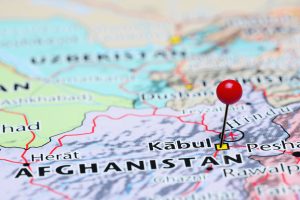Former President Ashraf Ghani will likely be remembered by most Afghans as a coward, who fled Afghanistan without negotiating a transfer of power. Such a transfer of power may have allowed Afghans to negotiate for some of their rights and could have offered their representatives space to exist within the new political order. Not only did Ghani’s government squander a chance to avoid the political cleanse that happened entirely in the Taliban’s favor, but they also missed the opportunity of saving governmental and military institutions from disintegrating. Nevertheless, for any sustainable society to emerge through this new reality, the Taliban will have to acknowledge moderate voices within the country, engage with them, and arrive at a reconciliation of separate visions.
A defining characteristic of violent conflicts is the existence of competing truths. Conversely, the existence of conflicting truths within societies serves as a catalyst for the possible resumption of violence. These conflicting truths between two parties manifest in the form of ignoring moral grievances, violating civil liberties, and undermining religious values of the opposing party. The Afghan people, Taliban and outsiders, will have to decide between letting the divide widen or working towards a convergence.
For any dialogue to occur, two steps are required on the Taliban’s part. First and most importantly, the Taliban would have to see the utility of creating a cohesive Afghan society. An arrangement where the educated population, with their views and aspirations, are sidelined is doomed to failure in the modern world. In the absence of willingness from the Taliban, the prospects of reconciliation are bleak.
Second, the Taliban’s values would need to be dissected. Actors are not always rational enough to weigh the cost and benefits of their actions, and this is especially true when the values being negotiated are sacred. Sacred values are those that groups see as the core of their identity. Traditional negotiation strategies that assume the fungibility of values not only fail but end up producing resistance to compromise. The Taliban’s indifference toward incentives offered by the international community reflect the above error in approach.
The Taliban could be pushed toward further rigidity if their sacred values are challenged by the wrong parties. Groups tend to consume information from and compromise with entities they identify with. To them, outsiders lack the credibility to shape narratives. Keeping that in mind, Afghan society would be better at negotiating matters such as women’s rights, girls’ education, and corporal punishments with the Taliban than the international community. Any push from the international community or compromise to it from the Taliban leaderships would come at a reputational cost to the Taliban leadership. The leadership would lose face to the rank-and-file that fought to oust foreign influence from Afghanistan.
If and when the Afghan civil society initiates a dialogue with the Taliban, decisions with regards to the type of support offered by the international community would be vital. First, platforms and support would have to be provide to civil society within Afghanistan to help it organize itself and arrive at a common approach. Second, the international community’s support for Afghan civil society must be subtle, so as to not alienate them to the Taliban. The educated urban population would have to avoid being stamped as foreign agents if they hope to not be ignored by the Taliban. Diaspora support to such Afghans would be fundamental as well.
It is essential for the Taliban to be able to stand by the promises made to the Afghan people before the fall of the Ghani government and the pledges made during any possible dialogue with civil society. The disparity in behavior by the Taliban’s security forces across cities are bad omens with regards to their ability to establish authority and uniform behavior in their ranks. The uncoordinated lifting of the ban on girl’s education in certain provinces, the checking of civilians’ phones by Taliban security personnel despite orders from the leadership not to, and the rough public punishment of suspects (including painting faces black, sticking sandals in their mouths, and tying people to posts for public beatings) are all behaviors that show discord among the Taliban’s ranks.
The Taliban would have to make up for the trust deficit that exists between the two ends of Afghan society. They cannot hope to rule the Afghan population through coercion and force indefinitely. They would have to remember Robert Jackson’s words: “Those who begin coercive elimination of dissent soon find themselves exterminating dissenters. Compulsory unification of opinion achieves only the unanimity of the graveyard.”
The Taliban are an unfortunate reality and arriving at a stable post conflict society is not going to be a simple task. The difference between Marx and Engel’s goals and those of Gandhi was that the first two wanted to completely push their opponents out of the social order and create an exclusive order for their ideology, whereas Gandhi believed in arriving at a synthesis. He believed that in order for a society to be sustainable, it would have to negotiate a setup in which even opponents are accommodated. Such a dialogue would have to be approached very tactfully.
Of course, at the core of it all would be an honest desire from the Taliban to create a sustainable Afghanistan and engage with any actor, be they Afghan or not.

































